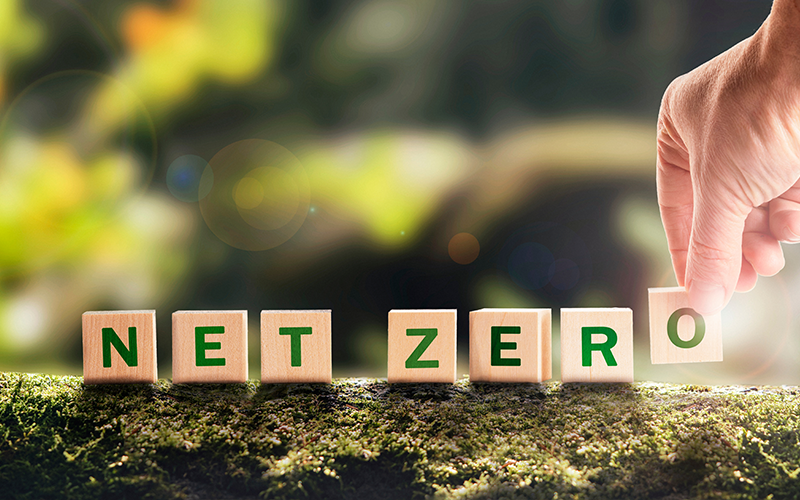The government’s cabinet reshuffle and the creation of a new department for energy security and net-zero is the big news this week. Top of the to do list for the new team will be securing long-term energy supplies, increasing renewables and seizing upon the opportunities in net-zero highlighted in the recently published Skidmore review.
Experts have welcomed the news but warned that net-zero will require business model and infrastructure changes (in other words, it’s not very easy). There is certainly more to do on energy but the heroic policymaking needs to be across industry, heating, transport (especially air), and agriculture/land, tweeted Green Alliance policy director Dustin Benton.
Indeed, the UK government was told by the High Court last year that’s its net-zero strategy was not up to scratch and a new one is due by the end of next month. Mike Childs, head of science, policy & research at Friends of the Earth welcomed the new department but warned it will be “little more than a PR exercise if it doesn’t turn around the government’s failing climate strategy”.
Which is a perfect segue to our next story on greenwashing. Dairy company Arla has been using the claim ‘net-zero climate footprint’ when marketing some of its products, but both the consumer watchdog in Sweden and the country’s Patent and Market Court aren’t happy about it: they felt this gave the impression that “the product does not give rise to any climate footprint at all”. The company has been banned from using the claim.
The decision certainly highlights the challenges that businesses currently face in making net-zero type claims. ‘Carbon neutral’ is of course another that is under the spotlight given its heavy reliance on offsetting. Another is regenerative’, a concept that many companies have cottoned on to but lacks definition. Dairy and beef companies, or those reliant on such products, are particularly interested in regenerative systems and the impact they could have on their net-zero targets. Danone has just announced a new 30% absolute reduction target for methane emissions from fresh milk used in its dairy products. CEO Antoine de Saint-Affrique said the target is “a commitment to build regenerative dairy”. Campaigners urged Nestlé and Arla to follow suit.
And from belching bovines we move to polluting poultry. Avara Foods, which is a big supplier of chicken to Tesco, is being pushed by campaigners to pay reparation to help clean up the River Wye. The Guardianreported how the Wye has been affected by increasing algal blooms, blamed partly on poultry farmsspreading more manure than the land can absorb. Some 20 million chickens are reared in the catchment, and earlier this month Welsh ministers issued a holding direction pausing the progress of plans for new poultry farms in the area.
Scientists think reducing overall bird numbers in the area might be a good idea, but Avara is having none of it. “There’s a continued demand for meat. There is no signal out there that says stop and cut back. We’re serving the consumer. If we didn’t produce [chicken meat] here, it would be imported,” the company’s agricultural director John Reed said.
No signal? Where has John been for the past decade or so, during which time everyone from the IPCC and the Climate Change Committee to Henry Dimbleby have been calling for cuts to meat consumption in order to reduce emissions and protect biodiversity. The boss of supermarket Lidl has incidentally just announced that he wants to replace more animal products with plant-based ones. Further details are due soon, according to Vegconomist, a website.
The need to reduce numbers of livestock always throws up juicy content for lazy journalists who can pitch furious farmers against the green brigade. The latest spat is taking place in Edinburgh, with the City Council having signed up to the plant-based treaty. What this means isn’t quite clear, but that hasn’t stopped everyone getting hot under the collar about it.
Which brings us to a report by Systemiq, a consultancy, and the University of Exeter, which details how redirecting public procurement to promote the uptake of alternative proteins is one of three “super leverage points” that could help the world decarbonise. The report describes a leverage point as a small intervention that can cause a large effect; super-leverage points meanwhile cut emissions in one key sector and support faster changes in other parts of the economy. The potential savings on emissions and land use (combined with nature restoration) are considerable should plant proteins hit, say, 20% market share, the authors noted. However, there isn’t enough evidence to determine what happens to meat production and intake if plant proteins take such a big bite out of the market. So, the upshot is the experts are not sure if this plant-based leverage point actually exists.
Rather more assertive were the experts involved in a carbon labelling trial run in the canteen at Microsoft HQ. The labels showed the environmental impact of different items on the menus, using a traffic light approach (red is bad for the climate, green is good) and grades A to E. Across a monthly total of around 2,200 transactions, sales of the lowest environmental impact meals rose by 50%, and sales of the highest climate impact meals dropped by 18.5%. Overall, the study found a total drop in emissions of 6.5% when carbon labels were present. The results “conclusively show that the presence of carbon labels influences consumers to choose meals with a lower environmental impact”, notes a summary of the pilot. Ecolabelling is, unfortunately, not that simple (as an upcoming Footprint report will show).












